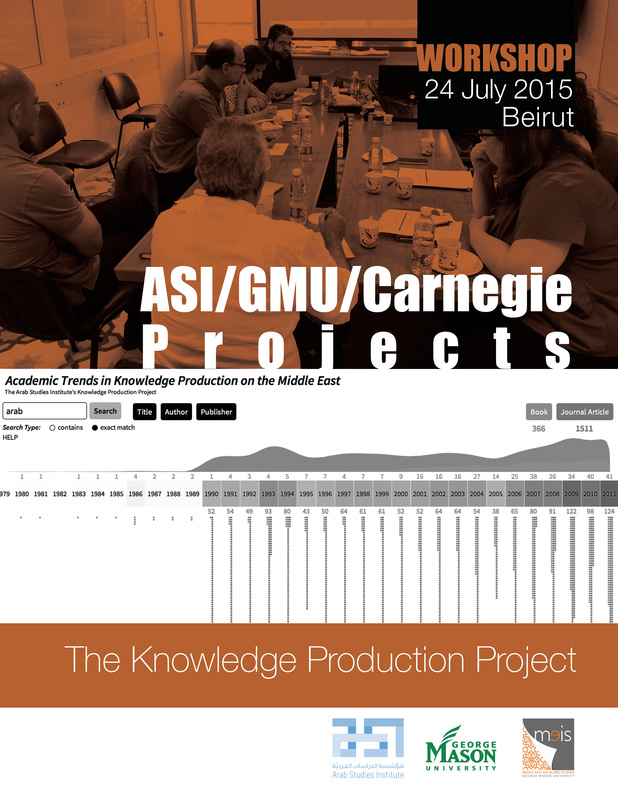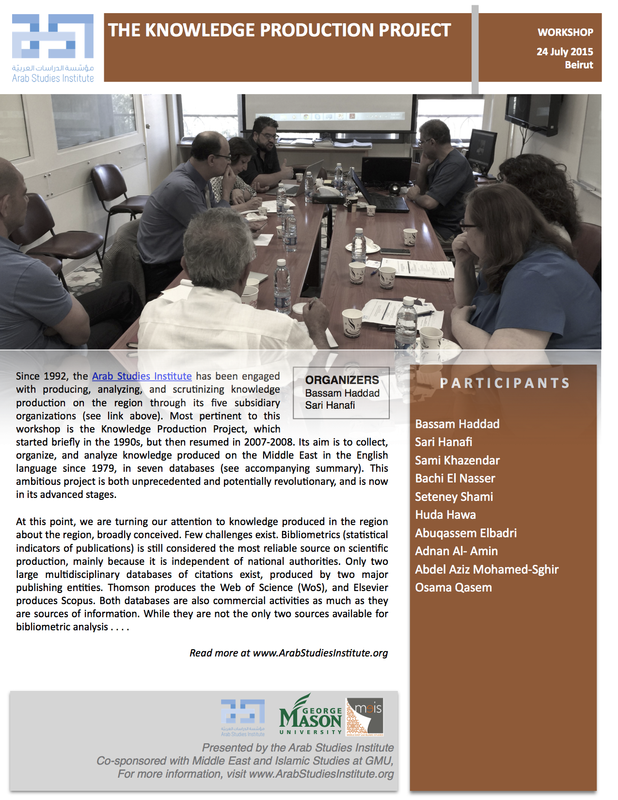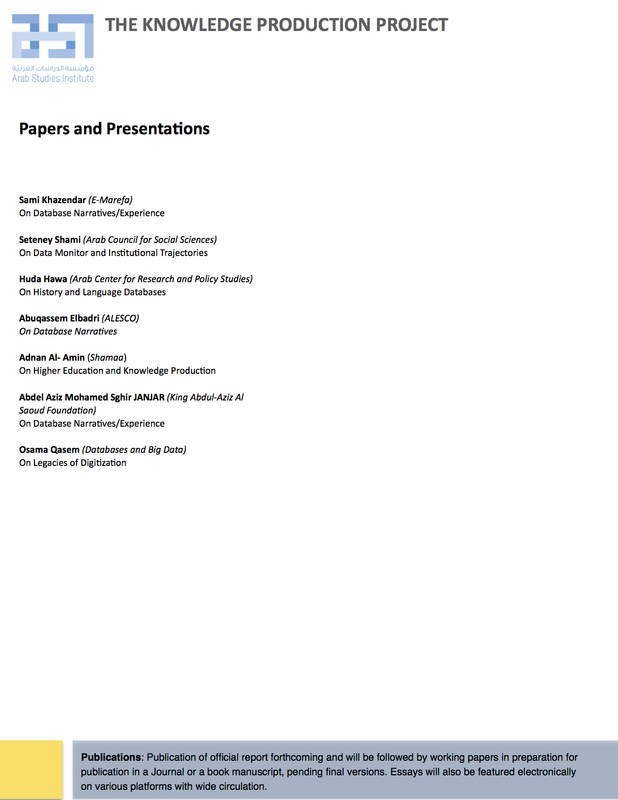- FAMA
- Researchers
-
Projects
- MESPI
- Knowledge Production Project >
-
Political Economy Project
>
- Development and the Uprisings
- Class Formations and Dynamics
- The Palestinian Economy: Fragmentation and Colonization
- Tunisia: A Political Economy in Transition
- Migrant States, Mobile Economies: Rethinking the Political in Contemporary Turkey
- Political Economy of the Middle East: Continuities & Discontinuities in Teaching & Research
- 2016 Political Economy Institute
- The Lebanon Project >
- The Palestine Project >
- The Civil Society Project >
- Middle East Media Project >
- The Egypt Project >
- Refugees and Migrants Project >
- Black-Palestinian Transnational Solidarities Project
- Initiatives
- Events
- Summer Institutes
- Internships
- Blog
KNOWLEDGE PRODUCTION PROJECT (MIDDLE EAST)
For decades, analysts spoke of the skewed and distorted portrayal of the Middle East in academia, the media, and policy circles in the United States primarily. But the data to corroborate such claims, or any other fundamental claims on knowledge production, is either missing or scattered. There has never been a sustained attempt to gathering comprehensive database of knowledge production on the Middle East that would be a resource, and a fact-checking mechanism, for confirming or debunking dominant knowledge and convictions in relation to the region, and for all parties/actors involved.
We seek to create such a comprehensive database and make it accessible to the public as an open source project. The potential uses are multiple across the board of potential audiences and perpetually self-regenerating.
This project is not an expansion of the Arab Studies Institute's activities. Rather it is a natural outcome of our mission for the past two decades. Our aim is not only to produce knowledge, but to interrogate and scrutinize the process of knowledge production on the region.
We seek to create such a comprehensive database and make it accessible to the public as an open source project. The potential uses are multiple across the board of potential audiences and perpetually self-regenerating.
This project is not an expansion of the Arab Studies Institute's activities. Rather it is a natural outcome of our mission for the past two decades. Our aim is not only to produce knowledge, but to interrogate and scrutinize the process of knowledge production on the region.
This eight-year project aims at gathering/mining, organizing, and analyzing knowledge produced on the Middle East, primarily in the English-speaking world, since 1979. The KPP involves the creation of six databases that catalog all peer-reviewed articles on the region, all books, and a variety of other print, visual and online sources of knowledge, including think-tank policy papers, films, and websites, to be made available to the general public. The project is primarily geared towards helping educators, researchers, and close observers of the region understand how knowledge of the Middle East is impacted by its method of creation.
"Knowledge production is not a neutral process. Interests and biases inform and often distort processes of knowledge production, which in turn influence policies and world views that touch the lives of many the world over."
- FAMA
- Researchers
-
Projects
- MESPI
- Knowledge Production Project >
-
Political Economy Project
>
- Development and the Uprisings
- Class Formations and Dynamics
- The Palestinian Economy: Fragmentation and Colonization
- Tunisia: A Political Economy in Transition
- Migrant States, Mobile Economies: Rethinking the Political in Contemporary Turkey
- Political Economy of the Middle East: Continuities & Discontinuities in Teaching & Research
- 2016 Political Economy Institute
- The Lebanon Project >
- The Palestine Project >
- The Civil Society Project >
- Middle East Media Project >
- The Egypt Project >
- Refugees and Migrants Project >
- Black-Palestinian Transnational Solidarities Project
- Initiatives
- Events
- Summer Institutes
- Internships
- Blog




